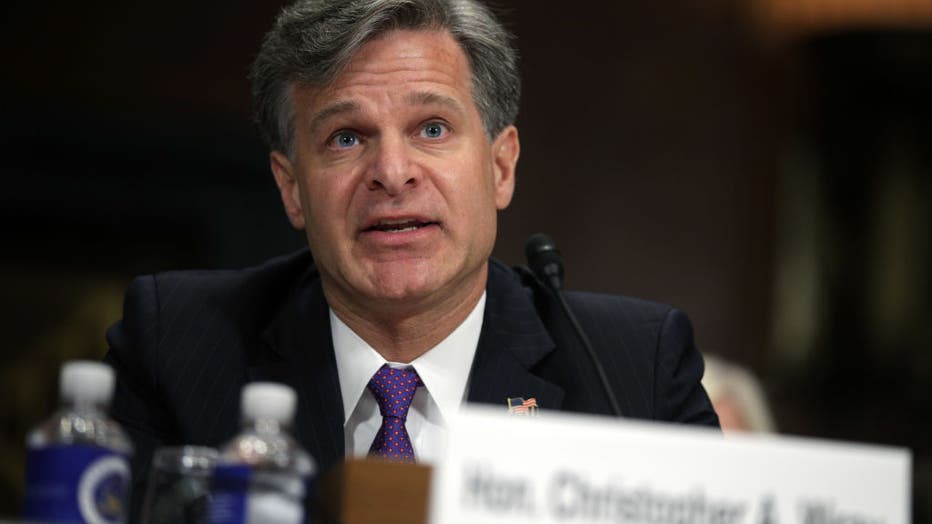FBI chief condemns Capitol riot as 'domestic terrorism,' defends intel
WASHINGTON - FBI Director Chris Wray condemned the January riot at the U.S. Capitol as "domestic terrorism" Tuesday as he defended the bureau’s handling of intelligence indicating the prospect for violence. He told lawmakers the information was properly shared with other law enforcement agencies even though it was raw and unverified.
Wray's comments before Congress, in a rare public appearance since the deadly Capitol attack two months ago, was the FBI's most vigorous defense against the suggestion that it had not adequately communicated the distinct possibility of violence as lawmakers certified the results of the presidential election. He also described in stark terms the threat from domestic violent extremists and said that, contrary to some Republicans, there is no evidence that anti-Trump groups were involved in the riot.
Many of the senators' questions Tuesday centered on the FBI's handling of a Jan. 5 report from the Norfolk, Virginia, field office that warned of online posts foreshadowing a "war" in Washington the following day. Capitol Police leaders have said they were unaware of that report and had received no intelligence from the FBI that would have led them to expect the sort of violence that besieged them on the 6th. Five people died as a result of the riot, including a Capitol Police officer and a woman who was shot as she tried to enter the House chamber with lawmakers still inside.

FILE - FBI director nominee Christopher Wray testifies during his confirmation hearing before the Senate Judiciary Committee July 12, 2017 on Capitol Hill in Washington, D.C. (Photo by Alex Wong/Getty Images)
Asked about the handling of the report, Wray told the Senate Judiciary Committee on Tuesday that it was disseminated through the FBI’s joint terrorism task force, discussed at a command post and posted on an internet portal available to other law enforcement agencies.
"We did communicate that information in a timely fashion to the Capitol Police and (Metropolitan Police Department) in not one, not two, but three different ways," Wray said, though he added that the outcome was "unacceptable" and the FBI was looking into what if anything it could have done differently ahead of the insurrection.
Though the information was raw, unverified and appeared aspirational in nature, Wray said, it was specific and concerning enough that "the smartest thing to do, the most prudent thing to do, was just push it to the people who needed to get it."
In characterizing the events of Jan. 6 as an act of domestic terrorism, Wray highlighted the FBI's growing concern about an increase in extremist violence in the U.S., including from militia groups, white supremacists and anarchists. The threat they pose is being treated with the same urgency as that from international terror groups like the Islamic State or al-Qaida.
"Jan. 6 was not an isolated event. The problem of domestic terrorism has been metastasizing across the country for a long time now and it’s not going away anytime soon," Wray said.
RELATED: More than 300 people have been charged after deadly US Capitol riot, Justice Dept. says
The violence at the Capitol made clear that a law enforcement agency that remade itself after the Sept. 11, 2001, attacks to deal with international terrorism is now scrambling to address homegrown violence from white Americans. President Joe Biden's administration has tasked his national intelligence director to work with the FBI and Department of Homeland Security to assess the threat.
Wray said the number of domestic terrorism investigations has increased from around 1,000 since he became FBI director in 2017 to about 2,000 now. The number of white supremacist arrests has almost tripled, he said.
Wray has kept a notably low profile since the Capitol attack. Though he has briefed lawmakers privately and shared information with local law enforcement, Tuesday's oversight hearing marked his first public appearance before Congress since before November's presidential election.

